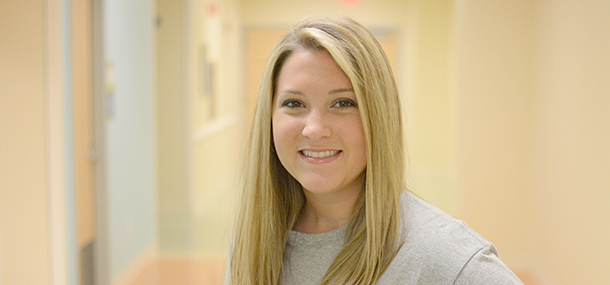

Seven years ago I was a timid, but eager, student rotating through the ultrasound department at Cincinnati Children’s. I was learning new ultrasound exams and terms everyday, and trying to take advantage of every chance to scan. As a student, you only learn so much from books and sitting in class. The real understanding comes when applying what you learned by actually scanning a patient. As a student I didn’t always know the questions to ask and didn’t learn a lot about childhood disease in my college program. A lot of what I saw at Cincinnati Children’s was new to me. Learning to scan multiple exams was my main focus, but I quickly found out that working with children and earning their trust is equally important to completing the exam. Patients of all ages come to us for care, and an important part of my training was learning how to adjust my communication for children of all ages – from babies to young adults and everything in between.

Now I have the responsibility of teaching students and new technologists in our department. Students watch and participate during their clinical rotations, eventually putting what they have seen into action. The student will watch as well as take some images,while being guided by the technologist. As a parent, you may hear the technologist explaining to the student about functions of the machine, how to make the image better, patient preparation, and/or general body structures. We appreciate your cooperation with students and welcome your questions about the ultrasound as well.

I can honestly say I love what I do. My goal is to make a difference for my patients and help aid in their diagnoses, as well as to inspire others to learn more about pediatric ultrasound. I enjoy teaching students and new trainees because I remember what it felt like to be in their shoes. I remember the topics and exams that I needed help with and the things I did not understand. It takes just a few words of encouragement or a little patience during instruction to create a positive experience, which can make a huge difference in their training.Having patience is necessary and letting the student and new trainees ask questions is an important part of learning. The time that we take to help others learn will carry over to future technologists and benefit patients in years to come. I am very blessed to be a part of such an amazing medical care team, and I hope to help with each exam I perform and each person I teach.

Contributed by Lindsey M. Hekler (RDMS) and edited by Paula Bennett (RDMS).